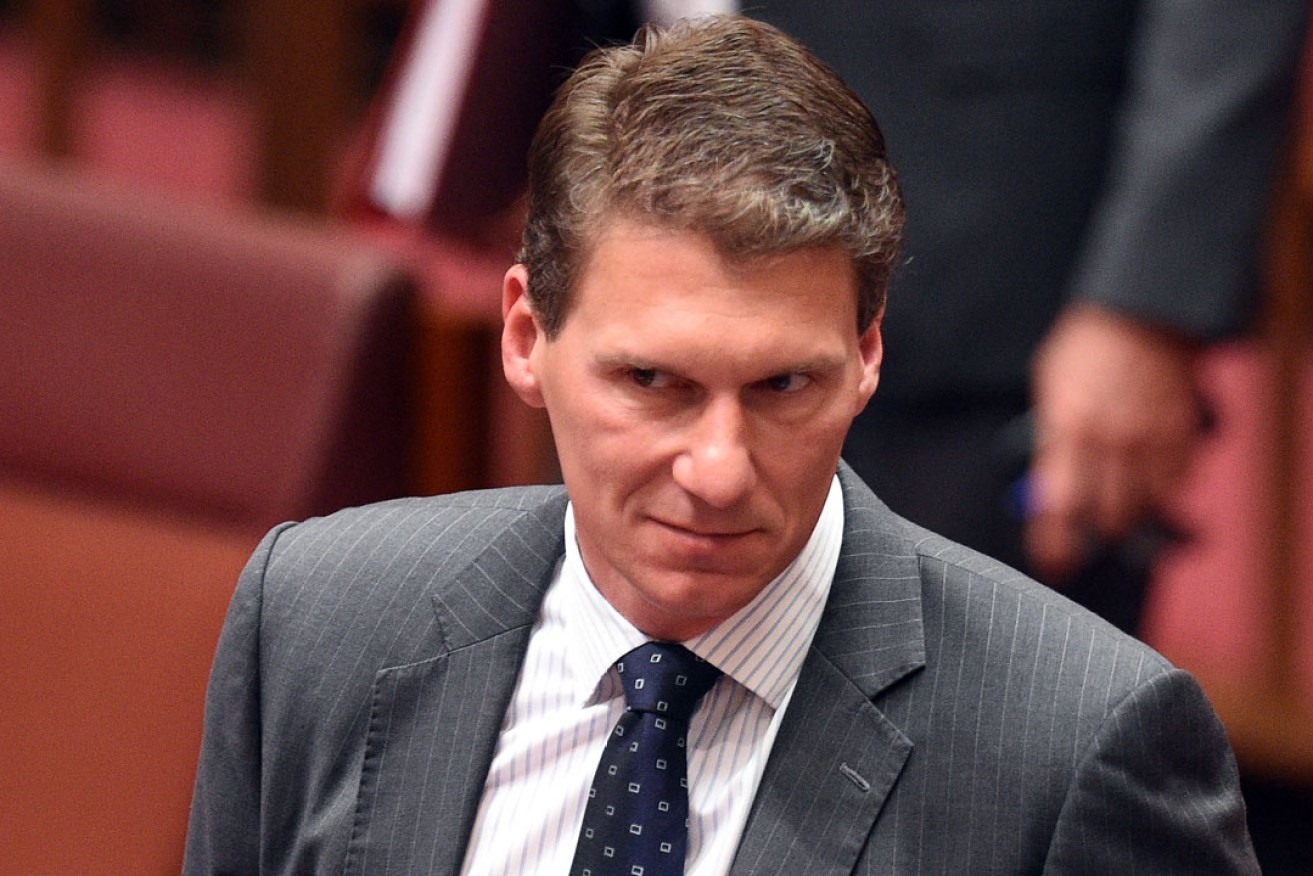Nothing to see here: PM on climate review
Malcolm Turnbull has played down backbench concern a review of his government’s climate action policies may lead to carbon pricing and higher electricity prices, insisting it’s been Coalition policy since 2010.

SA Senator Cory Bernardi. Photo: AAP
The prime minister also reiterated his opposition to a carbon tax.
“This is business as usual,” Turnbull told reporters in Sydney today response to savage criticism by conservative South Australian Cory Bernardi.
The Liberal senator, who has returned to Australia after a three-month stint with the United Nations in New York, queried the review’s terms of reference which includes consideration of an emissions intensity scheme for electricity generators.
Any emissions trading scheme or form of carbon pricing was “economic suicide”.
“It’s like ripping a scab off an old wound,” Bernardi told 2GB radio.
But Turnbull said a review was long-standing Coalition policy.
“It’s part of the policy we took to the election in 2013 and 2016 and, indeed, we took to the election in 2010.”
The prime minster reiterated his opposition to a carbon tax as did his deputy Barnaby Joyce.
“There are many distinguished members of the Coalition parties who have supported a carbon tax over the past. I’ve never done.”
An emissions intensity scheme sets a baseline for how much carbon dioxide a power station could emit for every unit of power generated, penalising those that breached their limit and rewarding cleaner models that emitted less.
Liberal MP Craig Kelly, who chairs the backbench committee on the environment, says he has no objection to the review leaving everything on the table.
But if it recommended a change in policy that increased the price of electricity “a lot of us in the Coalition will not accept that”.
“If it pushes electricity prices up this is the real concern I think every member of parliament should have,” Kelly told ABC radio.
“We are nervous about it because we think electricity costs, energy costs are such an important factor for every single household, for every single business and we have to be so careful with these schemes.”
The expert who worked with Turnbull previously on models for an emissions intensity scheme insists it can’t be called a carbon tax.
As well it had “much, much lower impacts on prices”, Frontier Economics managing director Danny Price told ABC radio.
“In fact, applied to Australia it actually puts prices lower than they would otherwise be so it can’t be claimed that prices will skyrocket because in fact prices will moderate,” he said.
South Australian Premier Jay Weatherill supports an energy intensity scheme, which he says is likely to be recommended by the review of the national energy market.
Weatherill says his government strongly supports such a scheme and would like to see it implemented soon.
The premier says it would bring on further baseload power and increase competition in the energy sector, leading to greater stability and cheaper prices for consumers.
“It allows us to continue play our clean, cheap renewable energy into the national electricity market but also have the stability of a baseload generator,” the premier said yesterday.
“It gives you affordability, stability and also cleanliness in relation to your electricity system.”
An energy intensity scheme operates by penalising generators for polluting above a baseline level, to help drive the transition to low-emission energy sources.
Polluting generators would then need to buy credits to offset their excess emissions from rival producers whose intensity was below the baseline.
This would result in brown and black coal generators having to buy credits from gas, wind and solar generators.
It’s one idea being considered by the review of the national energy market headed up by chief scientist Alan Finkel.
Environment Minister Josh Frydenberg indicated the government might consider such a scheme, telling ABC radio on Monday it had been proposed by a large number of groups.
But he said it was a question of waiting to see what the review recommended.
– AAP




